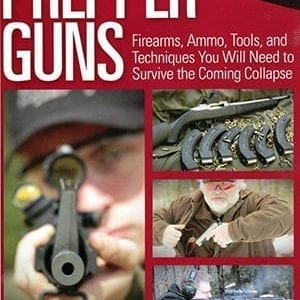I wrote this several years ago when I was starting out as an outdoor writer. It was published several times in The Vermont Sportsman and a few other magazines.
I was back on that mountain a few weeks ago and stood under that old treestand. The National Forrest is grown past any good deer habitat and it has choked out the apple trees. I realized that it’s likely no deer had passed by in weeks. The mountain is now a mature forest which is poor deer habitat. The area, like much of Vermont now holds but a fraction of the deer population it did a generation ago and our family camp sits abandoned and unused. I hunted out the day, but didn’t return this deer season as it makes me too damned sad remembering how used to be.
The first time I saw him he was six months old and as cocky as a skin-headed recruit fresh out of boot camp.
Our family deer camp was in the big woods country of Vermont an area of the state that produces big bucks and he was already bigger than most. Even at this age he outweighed his cousins by several pounds.
There is an old road that runs up the valley and through a pass to the other side of the mountain. This busy throughway of a forgotten era is now barely distinguishable in places. Along this, some long dead settler planted an orchard and now the deer harvest the apples. Young myself then, I waited sitting on a piece of scrap lumber nailed high in the branches of a hemlock tree and just before dark he came charging out ahead of his mother, full of youthful foolishness and too young yet to know a whitetail’s life is filled with danger. Then he caught wind of the doe in heat scent I had squirted on a tree thirty yards in front of me. With hair bristled, he advanced toward it in a stiff-legged, foot-stomping walk. As his nose touched the tree that I had put the scent on, he snorted and charged off, back to the swamp. This was one smart young buck. I could glimpse him occasionally off in the swamp, but he wouldn’t come back into the orchard no matter how bad he wanted to join Mama. He recognized that smell and it wasn’t supposed to be coming from birch trees. I had great expectations for him.
The next year, snow came early and feed was scarce. By the final days of short sixteen-day deer season, the tree that stood behind my stand was one of the few that had any apples. The deer were still picking through its meager offerings nightly, but usually long after dark, when I was back at camp, staring at the fire and wondering what I was doing wrong. The afternoon of the final day was stormy and this must have been the reason the deer came early. As the light was fading I noticed three deer ghosting through the storm.
He was with them, big chested, heavy bodied and carrying a rack that was better than any of his generation. I was looking over my right shoulder at them and as any rifleman knows, this is a tough shot. But as a southpaw, with scoped handgun, I was elated. I knew my elevated position and the brush between us hid me well and these deer were now preoccupied with filling their bellies before the storm. As I turned to aim at him, my treestand groaned. Not a loud groan, but subtle, barely audible in this storm. The does paid no attention, but he evaporated without a sound.
I knew this country and learned to recognize his tracks. I bragged in camp that I would hang his head on my wall and it became a quest to prove that I could. The years passed and we both grew, him bigger and smarter, me more frustrated. Many times I came close but never connected, one way or the other, he always seemed to gain the upper hand.
Once, after jumping him off a bed near the top of a mountain, I followed his tracks to the valley and back to the top while he showed me tricks I would have never believed a deer could execute. In one of the few mistakes I ever knew him to make he ran right through the camp of some hunters from Quebec who had backpacked deep into the woods. The only one there at the time was an unarmed cook, as the rest were out hunting. He was too excited to make his English work for him and he jabbered at me loudly in French, of which I know not a word. His gestures, however, were universal. I am sure that he had just seen the biggest buck of his life.
I stayed with that for two more trips up and then back down that same mountain. I had seen only a glimpse of him in something like ten hours of working his trail. I left at dark feeling more dead than alive, walking miles to the camp with a flashlight and the nagging feeling that for this buck it had been only a game with little doubt as to the outcome.
At last it was hunting season again. He was still out there. An early snow displayed his moose-like tracks. The ground along the lost orchard was littered with his scrapes and saplings carried the wounds from his massive antlers. He was still cocky, but sharp, smart and soon to be mine. For days I had climbed stiffly out of bed and hiked up a trail that rose 1000 feet in a mile and a half. Each day I found his calling cards. I studied the sign until I thought I had established a pattern and then orchestrated a series of brilliant ambushes, but he avoided every stand with aggravating ease. The snow came late that year, but when it did I followed his tracks for miles to no success. Each night I returned to camp by flashlight, tired and dejected, but determined that tomorrow would be my day.
I saw him twice that season. I had left his track and was climbing a hardwood ridge in a direction I hoped would take me closer to camp. The snow and sleet that was falling was blown by the wind so hard that I could not open my eyes. Dark was only a hour away and I hadn’t a clue as to where I was. Squinting through my ice coated lashes I pounded up the hill, legs pumping, my arms swinging and my gun on my shoulder. As I topped the ridge I could see him and his young apprentice quartering to me and running for cover. The protégé had a rack that would have looked good on any wall, but it seemed tiny compared to his. I raised my gun and through the scope the blinding snow formed a white wall, I dropped the gun and they were still out there. I raised it again and once more was blind, I dropped it and they were gone.
Fifteen days of hard hunting had taken its toll. I was tired and really didn’t have my heart in the hunt when some of the guys at camp suggested that we work the ridge where he had been hanging out. I pleaded for us to go instead for a smaller buck that one of them had missed the day before in a patch of thick brush closer to camp. I was overridden and they decided to once again climb the steep trail up the mountain. I couldn’t stay back knowing he was up there so I went along. We spread out about a quarter mile apart and worked the ridge south, paralleling each other and hunting slow. Instead of paying attention, I was leaning against a beech tree, tired and discouraged, wishing it would get dark so I could go home, when a doe came charging off the hill and ran by me. I made a mistake that wouldn’t have happened earlier in the hunt when I was sharp and should not have happened then. I was watching her; desperately trying to grow antlers where I knew none existed, when something about her behavior puzzled me. And then I knew. I turned around in time to see two tiny dark brown spots moving through the bush. One had antlers in front of it, too big to hide. They were sneaking along a shallow ravine and the tiny brown spots were the top of their backs, the only visible parts, other than those massive antlers. As I swung my rifle around, they reached the edge of the ridge and dove to safety. I was tired and mad at myself for so stupid a mistake, but I knew what I had to do.
When I left his track, it was too dark to see it without a flashlight and I knew he would be there next year. It was late when I got to the truck and my companions had gone home, knowing that I like to stay late and would be okay.
I climbed wet and tired into the cold cab, poured a luke-warm cup of coffee and drank a lonely toast to a very worthy adversary.
Epilogue: I was worried when the buddy that jumped them off the mountain told me later that he had seen blood in one of the beds. I knew that a hunter from another camp had shot at him earlier in the season. I hadn’t noticed any blood while on the track, but still it bothered me. The following year I hunted for a week without any sign of him, and then commitments kept me from the mountain until the last day. As I sat perched in that same tree stand watching the darkness move in I, felt a sadness with the certainty that he wasn’t alive. I don’t think that a hunter ever shot him; I suppose that one cold February night the coyotes caught him hungry and weak and completed the cycle.
A twig snapped and brought me to attention, under my stand stepped a button-horn buck. He walked, no swaggered, to the apple tree and started pawing the ground like he owned it all. I couldn’t help but notice how big and rangy he was for a six month old deer.




